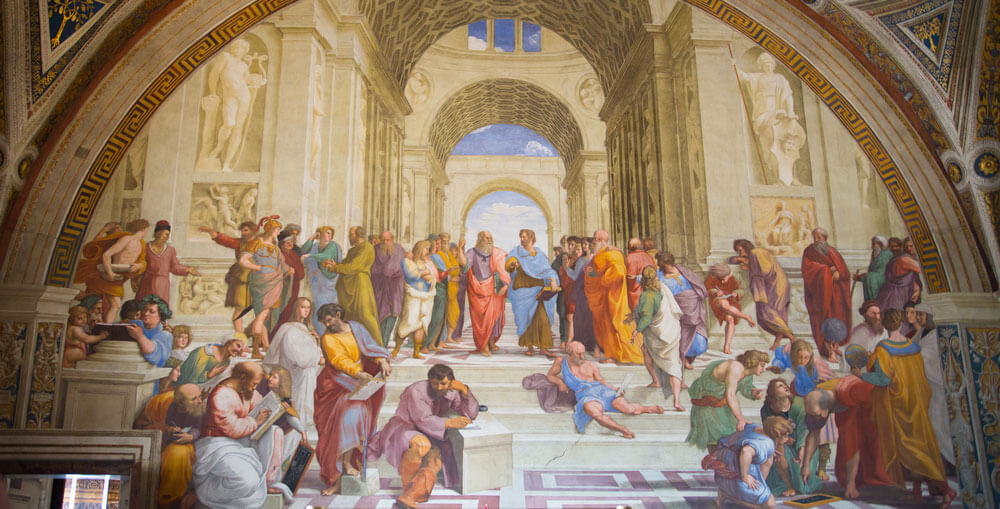
Lydia Amir: Transformative Philosophy, online via zoom
Transformative philosophy aims to emphasize the power of Western philosophy in bringing about personal change. It argues that philosophic ideals are viable today as they were in the past; and that choosing among them one ideal which is suitable to one s temperament, studying it and implementing it in everyday life is deeply transformative. The course aims to provide an introduction to such as approach.
Meeting One: Ancient Greek Philosophy
This meeting will introduce three versions of the Greek Ideal of Flourishing (eudaemonia). The main philosophers will be Socrates, his student Plato, and the latter’s student Aristotle.
Meeting Two: Hellenistic and Roman Schools of Philosophy
This meeting will introduce three versions of the Hellenistic (and Roman) Ideal of Peace of Mind (ataraxia). The main schools will be Epicureanism, Stoicism, and (Pyrrhonian) Skepticism.
Meeting Three: Medieval and Renaissance Philosophers
This meeting will introduce the religious Ideal of Salvation (salus), the role of philosophers in the medieval Christian era, and the efforts of Renaissance thinkers to liberate philosophic thought from the servitude to this ideal. The main religion will be Christianity, both Catholic and Protestant, and the Renaissance philosopher Michel de Montaigne.
Meeting Four: Modern Philosophers
This meeting will introduce the philosophic Ideal of Redemption Here and Now, both in its Enlightenment Cooperative or Social guise and in its individual or personal philosophic guise. French and English philosophers of the Enlightenment will be followed by Benedict Spinoza, Arthur Schopenhauer, Friedrich Nietzsche, ad George Santayana.
Meeting Five: Contemporary Philosophers
This meeting will introduce the last philosophic Ideal, Authenticity, the ideal of 20th century existentialist thinkers, such as Jean-Paul Sartre and Simone de Beauvoir, and its fate in the hands of postmodernism and of tragic philosophers, such as Clement Rosset.
10 hours, 10 credits, maximum 12 participants
Open to Certified, Affiliate, Associate and Adjunct members
program fee: $249
Cancellation policy: If APPA cancels the course, program fees will be 100% refunded. If a participant cancels their participation before the course starts, $200 will be refunded. If a participant cancels their participation during the course, the refund will be $200 minus $40 per week of attendance.

Lydia Amir is a French-Israeli professor of philosophy, currently teaching in the department of Philosophy at Tufts University and at graduate programs of Philosophy in Romania and Mexico. She also serves as a Research Fellow in the Institute of Advanced Studies in Humanities and Social Sciences at Beijing Normal University at Zhuhai, China. Amir has worked as a philosophical practitioner for the last 30 years. She is President of the Israeli Association for Philosophical Practice, a Director of the American Philosophical Practitioners Association, founding President of the International Association for the Philosophy of Humor, and member of various academic boards and committees. In addition to many articles and essays, Amir has published seven books, and is working under contract on several additional manuscripts. A board member of various journals, she serves as editor of two journals, one of which she founded, along with three book series; notably, the Lexington Series in Philosophical Practice.
